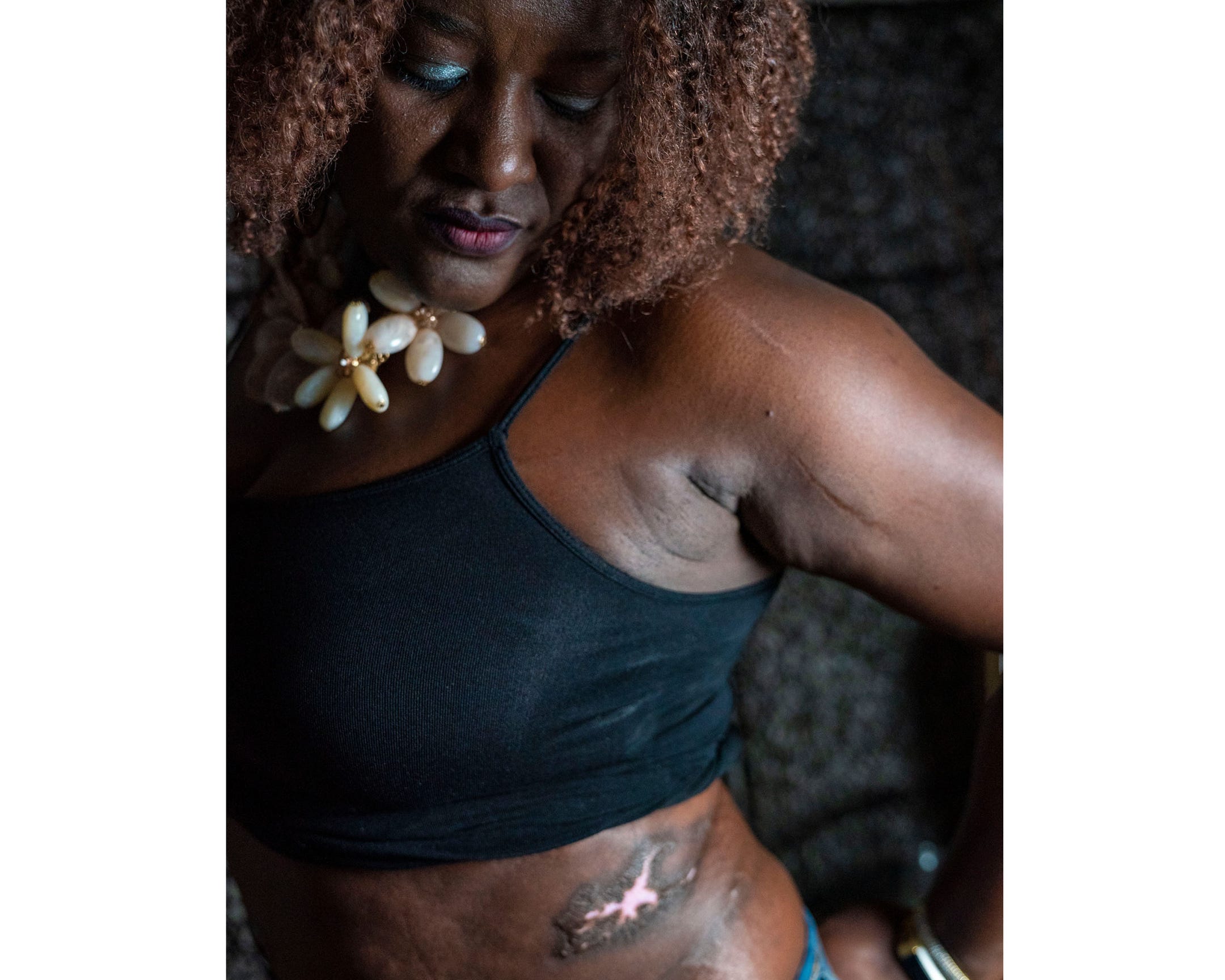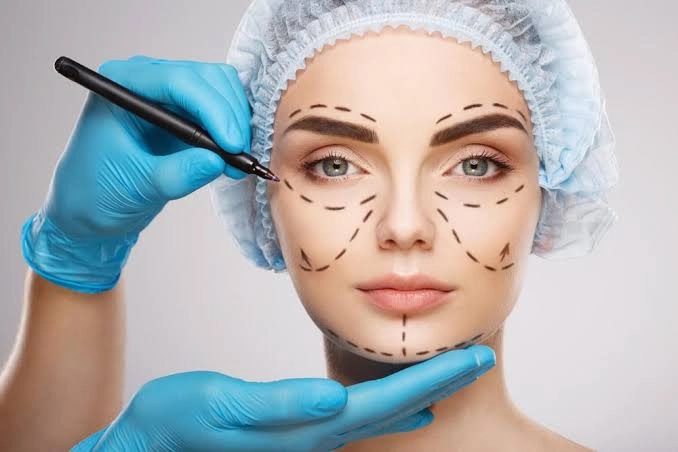Examining the Psychological and Social Variables That Drive People to Consider Plastic Surgery as a Method of Enhancement
The choice to pursue cosmetic surgical procedure often prolongs beyond simple aesthetics, intertwining with social and emotional characteristics that warrant detailed exam. Elements such as self-confidence, prevalent societal elegance requirements, and the prevalent influence of social media converge to form private inspirations for medical improvement. As these impacts become progressively popular, understanding the underlying emotional and social contexts is essential. What continues to be to be discovered is the profound impact these elements have not only on individuality yet also on wider social standards and values bordering charm and acceptance.
The Duty of Self-confidence
Self-worth substantially affects an individual's decision to go after cosmetic surgical treatment. People with reduced self-worth typically perceive themselves in an unfavorable light, causing feelings of insufficiency concerning their physical look. This adverse self-perception can drive them to look for surgical interventions as an approach of enhancing their self-image. The desire for enhancement in one's look is regularly linked to a belief that such changes will certainly elevate their total self-respect and confidence.

Ultimately, the role of self-worth in the decision-making procedure concerning cosmetic surgical treatment highlights the complicated interaction between body photo, personal satisfaction, and psychological health. Recognizing this connection is critical for healthcare experts to make sure that individuals are making educated choices rooted in reasonable assumptions and emotional well-being.
Social Beauty Specifications
Influenced by pervasive media portrayals and cultural stories, societal charm criteria play a crucial role in forming individuals' perceptions of their own bodies. These requirements are usually identified by an idyllic form of beauty that stresses traits such as youthfulness, slimness, and symmetry. As these perfects are continued via different networks, including movie, advertising and marketing, and tv, people often internalize these messages, leading to dissatisfaction with their natural appearance.
The ramifications of these societal standards extend beyond visual choices; they can influence self-esteem, psychological wellness, and social connections. People who perceive themselves as disappointing these requirements may experience sensations of inadequacy, prompting a wish for cosmetic surgical procedure as a means of accomplishing social approval. This quest is often fueled by the belief that adapting these perfects will enhance not just physical look yet likewise social standing and personal fulfillment.

Influence of Social Network
The impact of social elegance criteria is additional intensified by the increase of social media sites systems, where curated photos and idyllic representations of beauty are common. Users are regularly revealed to filtered and modified photographs, which often illustrate unattainable physical attributes. This direct exposure grows a culture of contrast, leading individuals to assess their own appearance versus these typically unrealistic criteria.
Social media influencers and celebs regularly advertise cosmetic treatments, normalizing the idea that medical improvements are a practical means for attaining social suitables (plastic surgery rancho cucamonga). The exposure of these improvements can produce an assumption that undergoing cosmetic surgical treatment is a standard technique, consequently influencing individuals to think about comparable interventions as a path to improved self-esteem and social approval
In addition, the interactive nature of social media permits for prompt comments with likes and remarks, even more strengthening the desire to comply with preferred beauty criteria. Such communications can intensify sensations of inadequacy and drive people toward cosmetic surgery as a way of gaining validation. Eventually, social media sites plays a pivotal role fit assumptions of elegance, which substantially affects the decision-making over here processes bordering plastic surgery.

Cultural Viewpoints on Appearance
Throughout numerous societies, perceptions of appearance are deeply rooted in historical, social, and financial contexts, shaping individuals' views on charm and desirability. In many cultures, appearance works as a substantial pen of identity, influencing social standing, professional chances, and individual partnerships. For instance, in some cultures, light skin is often associated with riches and benefit, while others may idealize darker complexion as signs of stamina and authenticity.
In addition, typical beauty standards are frequently continued with social narratives, media depictions, and household influences, leading to varying ideals across different regions (plastic surgery rancho cucamonga). In Western societies, the emphasis on young people and fitness often drives people towards cosmetic improvement, while in certain Eastern cultures, even more refined adjustments aligned with traditional aesthetics might be preferred
Globalization and the spreading of digital media have actually additionally made complex these characteristics, creating a hybridization of elegance suitables that goes beyond geographical borders. As individuals progressively browse these cultural stories, the stress to satisfy specific look standards can lead to the need for plastic surgery, reflecting an intricate interaction of social values and personal aspirations. Recognizing these cultural viewpoints is vital in dealing with the motivations behind cosmetic surgical treatment factors to consider.
Mental Influences of Cosmetic Surgical Procedure
Many individuals looking for cosmetic surgical procedure record experiencing profound emotional impacts that can significantly change their self-perception and emotional wellness - plastic surgery rancho cucamonga. The desire for physical enhancement typically comes from underlying concerns such as low self-worth, body dysmorphic condition, or societal pressures regarding charm requirements. For some, the instant post-operative phase can result in a short-term boost in self-esteem and satisfaction with their appearance, cultivating a sense of empowerment
Nonetheless, these positive sensations may not be withstanding. Study indicates that while some clients experience enhanced self-worth, others may encounter intense anxiety or anxiety if their expectations are not fulfilled. This disparity can occur from unrealistic ideals bolstered by media depiction and social stories bordering beauty.
Moreover, the psychological implications of plastic surgery extend past the person. Relationships with family members and pals may be stressed as social dynamics change, resulting in sensations of seclusion or alienation. Eventually, the mental effects of cosmetic surgery are complex and complicated, needing cautious consideration by both prospective patients and doctor to ensure informed decision-making and sensible assumptions.
Final Thought
In conclusion, the decision to pursue cosmetic surgical treatment is dramatically influenced by a mix of self-confidence concerns, societal charm standards, and cultural perspectives on appearance. The pervasive reach of social media additionally intensifies these stress, advertising impractical perfects her explanation that individuals usually aim to acquire. Comprehending these social and mental aspects is necessary for resolving the motivations behind cosmetic surgery, highlighting the need for a much more nuanced discussion surrounding beauty and self-acceptance in modern culture.
The decision to seek cosmetic surgical procedure commonly prolongs beyond plain aesthetics, linking with social and psychological characteristics that warrant complete examination. Eventually, social media plays a crucial role in shaping assumptions of elegance, which dramatically affects the more information decision-making processes bordering cosmetic surgical procedure.
As individuals progressively navigate these cultural narratives, the stress to adhere to details appearance standards can lead to the desire for cosmetic surgical treatment, mirroring a complicated interaction of individual goals and cultural values.In conclusion, the choice to pursue cosmetic surgical procedure is substantially affected by a combination of self-worth issues, societal elegance requirements, and social perspectives on appearance. Understanding these social and emotional aspects is important for resolving the inspirations behind cosmetic surgery, highlighting the need for a more nuanced discussion surrounding appeal and self-acceptance in modern society.